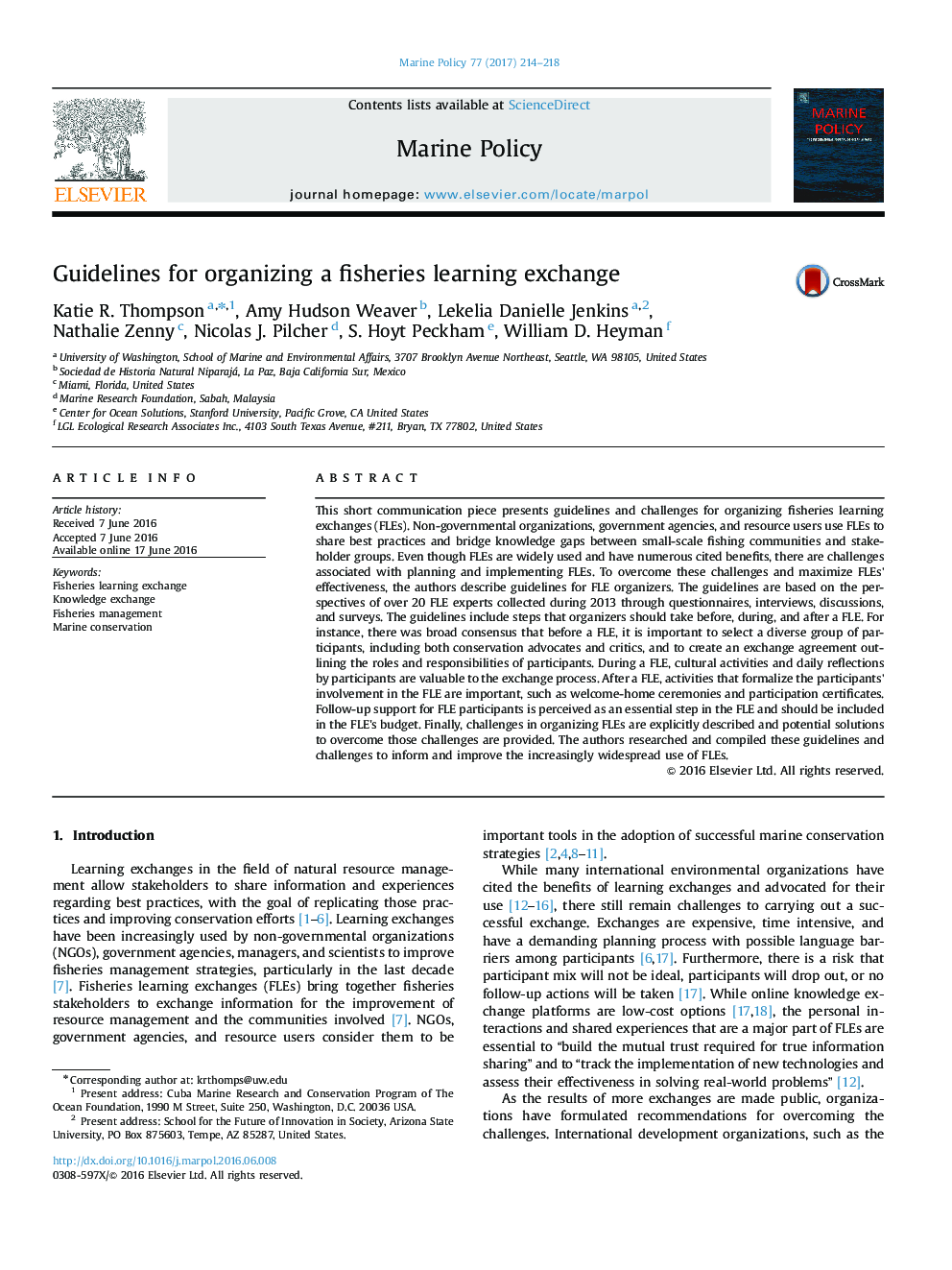| کد مقاله | کد نشریه | سال انتشار | مقاله انگلیسی | نسخه تمام متن |
|---|---|---|---|---|
| 5118247 | 1485502 | 2017 | 5 صفحه PDF | دانلود رایگان |
- The authors describe how fisheries learning exchanges (FLE) should be organized.
- The authors explain the challenges organizers may encounter when conducting FLEs.
- The guidelines are based on the perspectives of experienced FLE attendees.
- Following these guidelines will help maximize the effectiveness of FLEs.
This short communication piece presents guidelines and challenges for organizing fisheries learning exchanges (FLEs). Non-governmental organizations, government agencies, and resource users use FLEs to share best practices and bridge knowledge gaps between small-scale fishing communities and stakeholder groups. Even though FLEs are widely used and have numerous cited benefits, there are challenges associated with planning and implementing FLEs. To overcome these challenges and maximize FLEs' effectiveness, the authors describe guidelines for FLE organizers. The guidelines are based on the perspectives of over 20 FLE experts collected during 2013 through questionnaires, interviews, discussions, and surveys. The guidelines include steps that organizers should take before, during, and after a FLE. For instance, there was broad consensus that before a FLE, it is important to select a diverse group of participants, including both conservation advocates and critics, and to create an exchange agreement outlining the roles and responsibilities of participants. During a FLE, cultural activities and daily reflections by participants are valuable to the exchange process. After a FLE, activities that formalize the participants' involvement in the FLE are important, such as welcome-home ceremonies and participation certificates. Follow-up support for FLE participants is perceived as an essential step in the FLE and should be included in the FLE's budget. Finally, challenges in organizing FLEs are explicitly described and potential solutions to overcome those challenges are provided. The authors researched and compiled these guidelines and challenges to inform and improve the increasingly widespread use of FLEs.
Journal: Marine Policy - Volume 77, March 2017, Pages 214-218
